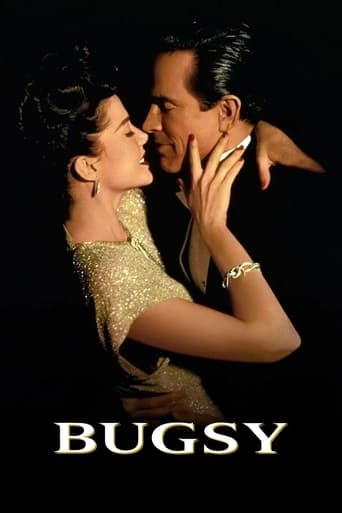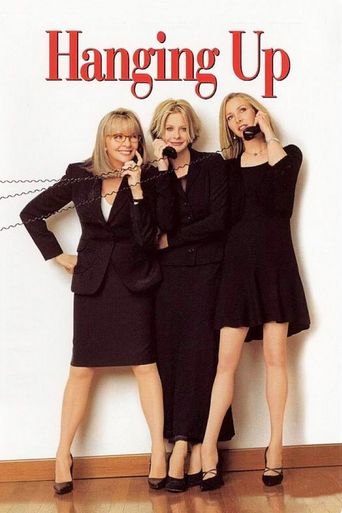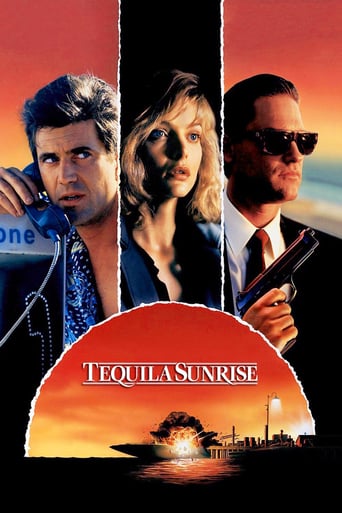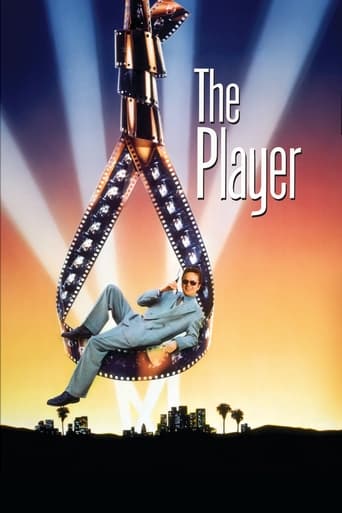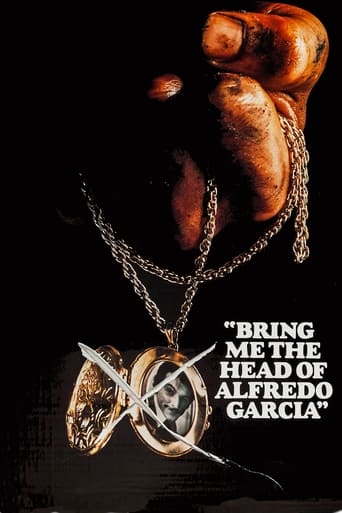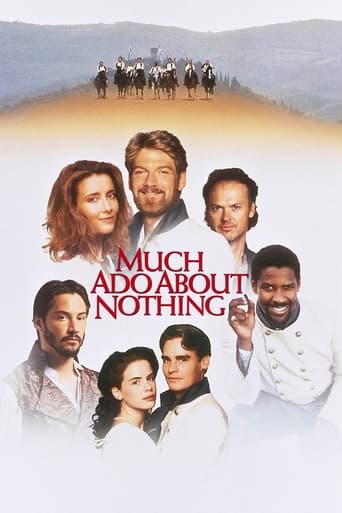

 Watch Now
Watch Now







Leaving Las Vegas (1995)
 Watch Now
Watch Now







Ben Sanderson, an alcoholic Hollywood screenwriter who lost everything because of his drinking, arrives in Las Vegas to drink himself to death. There, he meets and forms an uneasy friendship and non-interference pact with prostitute Sera.
Watch Trailer
Cast


Similar titles
Reviews
It's no definitive masterpiece but it's damn close.
Absolutely the worst movie.
A Masterpiece!
The film's masterful storytelling did its job. The message was clear. No need to overdo.
I have had this movie sitting in my library for sometime. I had it for two reasons: Nicolas Cage, and the fact that it won an Oscar. I didn't know there was Elisabeth Shue in it, or the reasons for my having this movie would have been three!And what a beautiful movie it is!Throughout its 1 hour and 48 minutes of running, I did not know where the time flew. A beautiful tale of two proud and graceful people who have been caught up in a rut of fate. An exquisite movie and something that make you feel better after watching it.However, there are certain drastic directorial and camera work issues: the camera often fails to focus on the subject in question. The booze glasses keep emptying or filling themselves up throughout the movie. I think the biggest of the goofs is that in the beginning when a hooker sucks Cage's wedding ring off his finger, and he discovers that when he wakes up, the ring is again on his finger afterwards.
It is brave of Mike Figgis to telegraph the ending of this story. Most films would not get away with this, and most directors would not dare try. In Leaving Las Vegas, Ben Sanderson has decided to drink his life away. He has already lost his wife, kids and jobs, and been left with a generous (too generous, in his opinion) severance check with which he will drown his sorrows in. Somehow, we believe him. Cage's performance is convincing enough, and full of despair, that we are never once not convinced that at the end of the film, he will die. Ben knows it. And so does Sera, the prostitute that takes a liking to him. But we and her also hold onto that faint glimmer of hope that things won't turn out that way. Thank goodness Figgis has stuck to his guns and maintained his integrity. If by some miraculous incident Ben had managed to survive the film, it would be robbed of all its power, and it would contradict every painful movement and word that Cage utters. The film is a bit of a sensory overload. Figgis has shot Las Vegas in an attempt to immortalise each moment the pair spend in it, in all its beauty and chaos. A favoured and re-used technique drops the frame- rate and shutter speed so the night-time lights and sounds blare from indistinct sources, and the POV struggles and stagger around, the world whirling around it in all its drunken stupour. The soundtrack is an unrelenting mass of bluesy jazz, with saxophone amping the neo-noir feel. We are meant to be drinking along, or puffing on a cigarette and staring out the window at the neon sign flickering across the street. The most noticeable effect is the slow motion. Figgis heightens each tiny intimacy between Ben and Sera - one in particular is later re- used for the final, admittedly goofy, freeze frame. This all seems overly dramatic, and it is at times. While a film like My Own Private Idaho might forge immense emotional crevasses with its sparseness, Leaving Las Vegas feels the need to linger, often for too long. Figgis also shows an awareness of the conventional expectations of the his archetypes, and is smart enough to subvert. Ben is the suicidal alcoholic. Sera is the hooker with the heart of gold. The meet cute type situation would normally be sweet, and move the pair towards redemption and happiness. Quite a few scenes are actually framed in this way, and would neatly fit into one of those romantic-comedies, if not for the emotional baggage that has already been acquired. They dine and finely comb each others lives, but here they are not so guarded. They dive into an impromptu moment of sexual passion, but once again Ben's love of the drink ruins it (later he showers with a bottle, caressing it tenderly as if it was the female form). And they walk in the night, and Figgis does the thing where the score takes over, and we can see their mouths moving and laughing, but not what they are actually saying, so we are forced to use our own experiences to fill in the speech bubbles. This all seems so familiar, so it is heartbreaking that it is so sure of its ultimate demise. Many have indicated that Sera's attraction to Ben seems illogical - that a real hooker would not stick out her neck for such a self-destructive person. I think it is in fact this quality that Sera finds solace in. Ben tells her to never stop him drinking. She agrees, and in return, asks that she be spared judgement solely because of her occupation. They are totally comfortable in these roles, even as they are completely honest about how desolate and aimless they are. These sorts of completely non-judgemental relationships can only exist in brief vacuums, because sooner or later someone will hurt themselves beyond reason, and one will judge the other's destructive behaviour. So Sera begs him to get medical care, even as she knows that is is unfair of her to ask this because of their agreement. She fights an inner battle, pouring liquor all over her body as if it was the only way to entice him sexually. She is found in the kitchen like a good little housewife, cutting up her vegetables and preparing a meal, while he enters and leaves with a bottle without so much as looking at her. Shue's role is crucial because she has the choice to force herself out of the situation after Yuri leaves, but not the willpower and strength to execute it. So she wallows in despair along with Ben, and after a while, decides that she can fix him. He becomes a goal, something she has not set herself for a very long time. Shue's performance here is overlooked. Cage got the Oscar because he had external flashiness, the type that no one would miss. But Shue has a tremendously vulnerable quality. In her therapy sessions she brags that she has complete control of each of her clients, and that she is proud of how carefully she has distanced herself from the stigma of the job and kept her persona strong. So when Shue wavers, it is heartbreaking. When she discovers Ben at home with another prostitute, her entire face crumbles like a little girl, and it is as far away from that bragging woman as we can get.
"Leaving Las Vegas" is about two sides of the same coin that need each other to feel complete. It is hard hitting and incredibly realistic. Nicolas Cage is perfectly cast for his crazy acting style as a raging alcoholic, and he gives an incredibly heart rending and accurate performance. Elisabeth Shue gives the performance of her career as a desperate and abused prostitute that begins to cling to Cage in his final, suffering days.Ben Sanderson is a failed screenwriter that once had a wife and a kid, but is now an alcoholic. He drinks when he wakes up and drinks himself to sleep everyday. When he doesn't get a drink, he goes into withdrawal. It is unclear whether he was a drunk before or after his wife left him, but it seems he no longer remembers nor cares. He is hopeless, and knows this, but when he is fired from his job, he decides to finally just leave everything behind and move to Las Vegas. He gets a room in a hotel called "The Whole Year Inn", or as he sees it, "The Hole You're In".Here he meets Sera, a hooker who is abused by her boss, but convinces herself that her life is just as good as she wants it to be. She says that every man she sleeps with is like a performance, she becomes whoever they want her to be. This is until Ben pays her and invites her to his hotel room. However, Ben doesn't want to have sex with her. They stay up and just talk, and Sera accidentally falls asleep and spends the night. But she finds that she was herself around another human being for the first time that night. She knew that Ben was hopeless, and he made her feel wanted and not alone. Once her abusive boss is killed, she starts to go out more with Ben. She invites him into her home, and he agrees to stay, only after telling her what she will have to deal with. She feels truly loved by him, and most importantly, not alone. She knows that she can't stop his alcoholism, and he knows that he can't stop her being a hooker. They have both dug themselves into that hole, and no matter how much abuse they take, they can't get out. And the only ones that could possibly put up with their lifestyles, is each other. Or, at first, at least. Their lifestyles begin to tear each other apart. Sera knows that Ben will die and Ben knows Sera is with other men. They are torn apart, and Sera has a horrible night in which she is abused and raped by some teenagers. She is kicked out of her house, and she realizes that she is powerless and lost without Ben. She finds Ben as he is on his deathbed, and in Bens final moments, he has sex with her, showing that he truly loves her, and accepted that she won't change. And Sera doesn't try to help Ben, showing she accepts that he won't change. Ben dies and Sera lives on without him, but Sera knew that it would happen eventually. The film is depressing, but it is unwavering in its harsh depiction of the hole these characters are in. It knows that the only way for them to leave Las Vegas is to die. They needed each other to be complete, but their relationship was doomed from the start because of the position they were each in. It is almost completely hopeless and the characters only get more depressed and cynical, but thats the way it needs to be. This film is to alcohol, as "Requiem for a Dream" is to drugs.
Alcoholism has always been a great device in movies. Over the years there have been many successful films that deal with addiction to alcohol and the devastating effects that come with it (The Lost Weekend, When a Man Loves a Woman, Days of Wine and Roses, to name but a few). It is a serious issue and subject matter, so the films that appear to succeed when tackling the issue are the ones that treat it with the importance it deserves. In saying that, Mike Figgis' Leaving Las Vegas might well be the bleakest of the lot. It features a washed up writer named Ben (an Oscar-winning Nicolas Cage) who heads to Las Vegas with the sole purpose of drinking himself to death. There is little about him gradually succumbing to the disease or how it ruins his family life. It is simply a man submitting to a temptation he can't let go of. For the most part the film is a twisted love story that revolves around self-destruction and the importance of dependency. Ben meets a prostitute named Sera (an Oscar-nominated Elisabeth Shue) who is just as wounded as he is, only she doesn't turn to drink because of it and forces herself to carry on. The two form a relationship that is genuine at its core, despite the fact that neither can change the other which is highlighted when Ben tells Sera that see can never ask him to stop drinking. This inability to change ultimately proves to be their downfall. Their relationship is equally chaotic and bittersweet. Drunken antics and frustration grow more apparent, but there is a clear love between them and in a way it is understandable why two broken people like this would be drawn together. Given how character driven the film is, Cage and Shue are the very centrepiece of the entire film. Cage has always been able to play characters on the edge, but he has a tendency to delve into the excessive a little too frequently. That never happens here. He is completely believable in every expression and motion. It's a wonderfully measured performance as his drunkenness never goes too silly and contemplations never get too dour. Shue is his equal in every way. She has always been an actress who has excelled at warmth and sincerity, and that really pays off here. She has such a strong expression of compassion whenever she is with Cage that it's very easy to forget that they are only acting. Julian Sands appears in the first half as Sera's pimp (unconvincing Latvian accent in all), but for the majority of the film it is simply Cage and Shue who take up our attention. It's a great credit to both actors that they are able to dominate a near two hour film with such ease. The Vegas they find themselves in is one of bright colours and seedy motels, perfectly suited to the horrid depths that Ben finds himself in. The score, composed by Figgis himself, is usually loud and very jazz-inspired, managing to fit the vivid images that are painted here. As the film progresses I think it does lose some focus. The set-up is executed to perfection and these characters fit together so well as their struggles increase. Everything about their conversations feels natural and expressive that the film struggles to keep this engaging aspect once the relationship begins to crumble. Ben begins to act even more rash because he is angered by Sera's occupation, but it is like he completely forgot their earlier agreement and that's all the more distasteful by the fact that any retreats that Sera makes are because she cares about him so much.As the film reaches its conclusion there is both sadness and hope present. One of them will never change, but there's a chance that the other will. In reflection, Leaving Las Vegas is not an easy film to watch because of how deep its willing to go into such an unpleasant area. Never the less, it is an important piece of cinema and one that resonates because it doesn't pull any punches. Cage and Shue are the true heroes. Both provide career best performances that are filled with sensitivity and pathos, as well as a chemistry that makes their actions all the more credible. Sure the films narrative wanes toward the end, but I truly believe that the power shown in these performances and the intelligence shown in consideration to the subject matter makes the film leave an undeniable impression.





